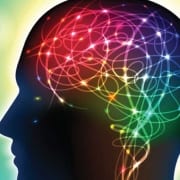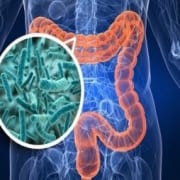What to Eat and What to Avoid If You Get Migraine Headaches
Migraines are far more than just a bad headache. Experts believe migraine headaches are caused by abnormal brain activity, including dilation and constriction of the blood vessels within the brain. An attack can last from several hours to several days and affects a person’s ability to function at home and at work. A migraine can generate feelings of nausea, vomiting, sensitivity to light and sound, throbbing head pain, aura, and visual distortion, causing a person to want to withdraw and seek immediate relief. If you have never experienced a migraine headache, consider yourself lucky, but for those who do, finding a way to manage the pain and lessen the frequency is a top priority.
Knowing what triggers your migraine headaches is the best defense in avoiding them, especially since triggers can be cumulative. While there are a number of potential causes of a migraine – including hormones, stress, weather, medications, and environmental factors – for many, dietary triggers are a major contributor. Keeping a detailed journal for several weeks may sound tedious, but the effort you put in will be well worth it. With some careful recording, a pattern should be detected. Doing this, along with a thorough physical exam to look for possible nutritional deficiencies (migraine sufferers tend to be deficient in magnesium, vitamin B (riboflavin), vitamin D, and CoQ10), and a detailed discussion with your physician or migraine specialist will put you well on your way to regaining the quality of life you have lost.
When considering how you can reshape your diet to improve migraine symptoms, the bottom line is to eat fresh, not processed, food. The more work that goes into preparing foods for the consumer, the more likely it is that it will have an additive that may be a trigger for you. In general, the following food guidelines will benefit most migraine sufferers.
Questions? Give Us a Call!
What to Eat

Halibut, mackerel, and salmon
Opt for the fattier fishes at the grocery store to make sure you are getting enough omega-3 fatty acids. Diets high in omega-3s and low in omega-6s have been found to lessen the frequency and occurrence of migraine headaches,
Cashews, almonds, and pumpkin seeds
Because of their high magnesium content, cashews, almonds, and pumpkin seeds are the nuts to turn to if you suffer from migraines. Aim for 1 ounce per day.
Steel-cut oatmeal
Drops in blood sugar can be a trigger for many migraine sufferers. To maintain steady blood-sugar levels, eat foods with a low-glycemic index, like steel-cut oatmeal and oat bran.
 Spinach
Spinach
Popeye ate it for energy and iron, but migraine sufferers will appreciate spinach for its high folic acid (B9) content. A 2024 study folate’s relationship with the frequency of migraine found that participants who increased their intake of folic acid experienced an improvement in their migraine symptoms. A review of 11 studies regarding the role of vitamin-B supplementation to treat migraines found it to be an effective treatment for adults, with few side effects. Other dietary sources of vitamin B include mushrooms, asparagus, and eggs.
Incidentally, spinach is also high in magnesium, doubling its migraine-fighting properties. Whether it’s steamed, fresh, or sautéed, try adding a spinach dish to the menu once a week!
Water
Staying hydrated is one of the most important things you can do for your body in general, and you’ll see that it will help with migraines too. Eight glasses of water each day is recommended, but if you consistently miss that mark make sure to snack on foods with high water content, like cucumbers, apples, and pears!
What to Avoid
Alcoholic beverages
Red wine, beer, and whiskey, in particular, have been cited in numerous studies to be triggers for migraines. Alcohol is the most frequently reported trigger by those suffering from migraines, with most studies finding a prevalence rate between 29 and 36 percent.

Baked goods
Wheat flour, found in most traditional baked goods, contains the protein gluten. If you are sensitive to gluten (approximately 6 percent of the population is) or if you have the autoimmune disorder celiac disease (it is suspected that there are more people with undiagnosed celiac disease than diagnosed), even small amounts of gluten can set off an inflammatory response in your body. While celiac disease can be diagnosed through specialized testing by your physician, there are no specific tests for gluten intolerance. Eliminating all gluten from your diet for at least two weeks and monitoring your symptoms is the only reliable way to make the diagnosis of gluten-sensitivity at this time. Along with intestinal problems, neurological presentations—including migraines—are common to both diseases. If you think gluten may be the cause of your migraine, talk to your physician before you adopt a gluten-free diet for a better understanding of how it will affect your overall health.
Processed meats
In order to maximize the shelf life and flavor of processed meats and fish, such as hot dogs, sausages, bacon, deli meats, and smoked fish, manufacturers add the food preservatives sodium nitrate and sodium nitrite. When we consume foods with nitrates and nitrites the result is an increase in nitric oxide, which has been linked to an increase in the occurrence of migraine headaches. Furthermore, a very interesting study found that people whose intestinal microbiome contained a higher level of particular bacteria that facilitates the breakdown of nitrates were more likely to suffer a migraine attack after eating food that contained them.

Aged cheeses
Cheese lovers, beware! Certain aged cheeses, such as blue, Brie, cheddar, provolone, Gorgonzola, and Parmesan all contain tyramine, a naturally occurring substance found in aged and fermented foods that have long been linked to an increase in migraine headaches.
Questions? Give Us a Call!
MSG
It’s not just in your Chinese food! Monosodium glutamate, which has a long, proven history of causing headaches and migraines, is a flavor enhancer that can be found in food items from marinades and salad dressings to chips, seasonings, even canned tuna! It has so many aliases – natural flavoring, hydrolyzed plant protein, komu extract – that unless you are an expert in food labels, it’s hard to know if you’re eating it or not. The bottom line—if you eat a lot of processed, packaged, or restaurant foods, you’re likely eating a good amount of MSG.
Artificial sweeteners
They are found in beverages, baked goods, candies, and scores of other processed foods, and for many, artificial sweeteners such as aspartame are a migraine trigger.
Citrus fruits
It may surprise you to see citrus fruits on this list, but octopamine, a chemical compound found in certain citrus fruits, can cause migraines with aura for those who are sensitive.
Bottom line
The only way to improve the frequency of migraines is to understand what is causing them. Our providers have years of experience treating patients with chronic migraines and we can help you uncover the root cause of your pain. To speak to an experienced nurse today, please give us a call at 703-532-4892.
Watch now: Dr. Lisa Lilienfield on “The Mystery of Migraines”
References
Finocchi C, Sivori G. Food as trigger and aggravating factor of migraine. Neurol Sci. 2012 May;33 Suppl 1:S77-80. doi: 10.1007/s10072-012-1046-5. PMID: 22644176.
Sun-Edelstein C, Mauskop A. Foods and supplements in the management of migraine headaches. Clin J Pain. 2009 Jun;25(5):446-52. doi: 10.1097/AJP.0b013e31819a6f65. PMID: 19454881.
Haghdoost F, Togha M. Migraine management: Non-pharmacological points for patients and health care professionals. Open Med (Wars). 2022 Nov 23;17(1):1869-1882. doi: 10.1515/med-2022-0598. PMID: 36475060; PMCID: PMC9691984.
Saedisomeolia A, Ashoori M. Riboflavin in Human Health: A Review of Current Evidences. Adv Food Nutr Res. 2018;83:57-81. doi: 10.1016/bs.afnr.2017.11.002. Epub 2018 Feb 2. PMID: 29477226.
Razeghi Jahromi S, Ghorbani Z, Martelletti P, Lampl C, Togha M; School of Advanced Studies of the European Headache Federation (EHF-SAS). Association of diet and headache. J Headache Pain. 2019 Nov 14;20(1):106. doi: 10.1186/s10194-019-1057-1. PMID: 31726975; PMCID: PMC6854770.
Chen YS, Lee HF, Tsai CH, Hsu YY, Fang CJ, Chen CJ, Hung YH, Hu FW. Effect of Vitamin B2 supplementation on migraine prophylaxis: a systematic review and meta-analysis. Nutr Neurosci. 2022 Sep;25(9):1801-1812. doi: 10.1080/1028415X.2021.1904542. Epub 2021 Mar 29. PMID: 33779525.
Tian S, Yu X, Wu L, Zheng H, Zhong X, Xie Y, Wu W. Vitamin B6 and folate intake are associated with lower risk of severe headache or migraine in adults: An analysis based on NHANES 1999-2004. Nutr Res. 2024 Jan;121:51-60. doi: 10.1016/j.nutres.2023.11.008. Epub 2023 Nov 15. PMID: 38042023.
Zaeem, Z., Zhou, L. & Dilli, E. Headaches: a Review of the Role of Dietary Factors. Curr Neurol Neurosci Rep 16, 101 (2016). https://doi.org/10.1007/s11910-016-0702-1
Bagdy G, Riba P, Kecskeméti V, Chase D, Juhász G. Headache-type adverse effects of NO donors: vasodilation and beyond. Br J Pharmacol. 2010 May;160(1):20-35. doi: 10.1111/j.1476-5381.2010.00643.x. Epub 2010 Mar 19. PMID: 20331608; PMCID: PMC2860203.
D’Andrea G, Gucciardi A, Leon A. Elusive amines: migraine depends on biochemical abnormalities. Neurol Sci. 2022 Nov;43(11):6299-6304. doi: 10.1007/s10072-022-06241-2. Epub 2022 Jul 16. PMID: 35840874.
We are here for you, and we want to help.
Our goal is to return you to optimal health as soon as possible. To schedule an appointment please call: 703-532-4892 x2
This article was originally published in March, 2017. It was reviewed and updated in Jan 2024.

 Spinach
Spinach









